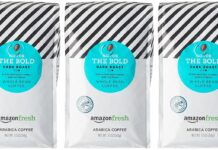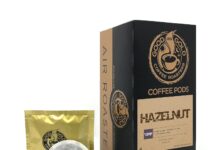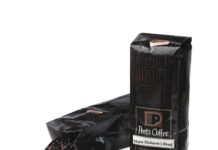Have you ever wondered if freezing your coffee can actually help keep it fresh? As coffee enthusiasts, we were curious to find out the truth behind this practice. In this article, we explore whether freezing coffee really preserves its flavor and aroma, or if it ends up sacrificing quality. Join us as we unravel the mystery and uncover the science behind freezing coffee.
The Effect of Freezing on Coffee
What happens to coffee when it is frozen?
Freezing coffee is a practice that has gained popularity among coffee enthusiasts, but what exactly happens to coffee when it is frozen? When coffee is exposed to freezing temperatures, it undergoes certain changes due to the expansion of water molecules. During the freezing process, the water inside the coffee beans forms ice crystals, which can cause the cells within the beans to rupture. This can potentially lead to a loss of flavor compounds and aromatics in the coffee.
How does freezing affect the flavor of coffee?
Freezing coffee can have varying effects on its flavor. One of the main concerns with freezing coffee is the potential loss of aroma and flavors. The expansion of water molecules during freezing can cause the delicate flavor compounds in coffee to break down or dissipate. As a result, the coffee may lose some of its complexity and nuances. Additionally, the exposure to moisture and air, which can occur when thawing frozen coffee, can further impact its flavor.
Does freezing coffee extend its shelf life?
One of the commonly touted benefits of freezing coffee is that it extends its shelf life. While freezing can indeed help to preserve the coffee and prevent it from going stale, it is important to note that it does not stop the aging process altogether. Freezing can slow down the deterioration of the coffee, but it cannot completely halt it. Therefore, while frozen coffee may last longer than coffee that is stored at room temperature, it is still recommended to consume it within a reasonable period of time to ensure optimal freshness and flavor.
Factors to Consider when Freezing Coffee
Choose the right coffee beans
When it comes to freezing coffee, selecting the right type of coffee beans is crucial. It is recommended to choose high-quality, freshly roasted beans for freezing. The fresher the beans, the better they will retain their flavors and aromas during the freezing process. Additionally, certain coffee varieties, such as those with darker roasts, tend to fare better when frozen due to their robust flavors and stronger aromas.
Properly store coffee beans before freezing
Before freezing coffee beans, it is important to ensure that they are stored properly. This includes keeping them in airtight containers or bags to prevent any exposure to air and moisture. Oxygen and moisture can accelerate the deterioration of coffee, leading to a loss of flavor and quality. Therefore, it is recommended to transfer the beans into airtight containers or resealable bags to maintain their freshness before freezing.
Container selection for freezing coffee
Choosing the right container to freeze coffee is essential for preserving its flavor and quality. It is advisable to use containers that are specifically designed for freezing, such as freezer-safe plastic bags or airtight glass jars. These containers will help to minimize the exposure of the coffee beans to air and moisture, thereby reducing the risk of flavor degradation. Moreover, it is important to ensure that the containers are properly sealed to prevent any freezer burn or contamination.
Freezing Coffee: The Process
Preparation before freezing coffee
Before freezing coffee, it is recommended to take certain preparatory steps to ensure the best outcome. Firstly, allow the coffee beans to cool down completely after roasting to avoid condensation inside the packaging. Next, transfer the beans into airtight containers or resealable bags, ensuring that they are properly sealed. Lastly, label the containers with the roast date to keep track of their freshness.
Packaging coffee beans for freezing
Proper packaging of coffee beans is vital to maintaining their quality during freezing. Divide the beans into small portions that you would typically use for brewing, as repeated thawing and refreezing can degrade the flavor of the remaining beans. Squeeze out any excess air from the containers or bags before sealing them tightly. This will help to minimize the potential for oxygen exposure and freezer burn.
Freezing and thawing coffee
When freezing coffee, it is important to choose a freezer that maintains a consistent temperature, preferably set at 0°F (-18°C). Freezing at a lower temperature can help to preserve the flavor and quality of the coffee.
To thaw frozen coffee, it is recommended to transfer the desired amount of beans from the freezer to the refrigerator. Slow thawing in the refrigerator helps to minimize the exposure to temperature fluctuations and avoids condensation. Once thawed, it is advisable to use the coffee beans within a week to ensure optimal taste.
Impact on Coffee Quality and Flavor
Potential loss of aroma and flavors
Freezing coffee can potentially lead to a loss of aroma and flavors. The expansion of water molecules during freezing can cause the delicate flavor compounds and aromatics in coffee to break down or dissipate. As a result, the coffee may lose some of its complexity and nuances. While freezing can help to preserve the overall flavor to a certain extent, it is important to note that the coffee may not taste as vibrant and flavorful as freshly roasted coffee.
Exposure to moisture and air
During the freezing process, there is a risk of exposure to moisture and air, especially when thawing the coffee. If the coffee is not properly sealed or if condensation occurs during thawing, it can affect the flavor and quality of the coffee. Moisture can cause the coffee beans to become stale and develop off-flavors. Therefore, it is crucial to use airtight containers and thaw the coffee slowly in the refrigerator to minimize moisture exposure.
Effects on the balance and taste of coffee
Freezing coffee can potentially affect the balance and taste of the brew. The combination of the loss of aroma and flavors, as well as the exposure to moisture and air, can lead to a less balanced and less vibrant cup of coffee. The coffee may taste dull or muted, lacking the complexity and subtlety that is often associated with freshly roasted beans. However, the impact may vary depending on the quality of the beans, the storage conditions, and the specific brewing method used.
Comparing Freshly Roasted Coffee and Frozen Coffee
Retaining freshness of freshly roasted coffee
Freshly roasted coffee is known for its vibrant flavors and aromas. When coffee is consumed shortly after roasting, it offers a significantly higher level of freshness and complexity. The flavor notes are often more pronounced, allowing for a more enjoyable and nuanced coffee experience. However, as time passes, the beans start to lose their freshness and the flavors begin to diminish.
Maintaining the quality of frozen coffee
Freezing coffee provides a way to preserve the quality of the beans and retain some of their freshness. While frozen coffee may not have the same level of vibrancy and complexity as freshly roasted coffee, it can still offer a satisfying cup when prepared correctly. The key is to package and store the beans properly, minimizing the exposure to air, moisture, and temperature fluctuations.
Taste differences between fresh and frozen coffee
When comparing the taste of fresh and frozen coffee, there are noticeable differences. Freshly roasted coffee tends to have a brighter and more vibrant flavor profile, with a wide range of distinct notes. On the other hand, frozen coffee may have a slightly muted flavor and a less pronounced aroma. However, the taste differences may not be significant enough to outweigh the convenience and extended shelf life that freezing coffee provides.
Pros and Cons of Freezing Coffee
Advantages of freezing coffee
The practice of freezing coffee offers several advantages. Firstly, it can help to extend the shelf life of coffee, allowing it to be enjoyed over a longer period of time. This can be particularly beneficial for those who purchase coffee in bulk or who want to stock up on their favorite beans. Additionally, freezing coffee provides convenience, as it allows for easy access to a fresh cup of coffee whenever desired. Finally, freezing coffee can be a cost-saving measure, as it helps to prevent waste by preserving unused beans.
Disadvantages of freezing coffee
While freezing coffee has its benefits, there are also some disadvantages to consider. As mentioned earlier, freezing can lead to a potential loss of aroma and flavors, resulting in a less vibrant cup of coffee. Additionally, the process of freezing and thawing can introduce moisture and air into the beans, which can negatively impact their quality. Furthermore, freezing coffee requires careful packaging and storage to prevent freezer burn and maintain optimal flavor.
Best Practices for Freezing Coffee
Using airtight containers
To ensure the best results when freezing coffee, it is essential to use airtight containers. This will help to minimize the exposure of the beans to air and moisture, which can degrade their quality. Freezer-safe plastic bags or airtight glass jars are commonly used for storing coffee in the freezer. It is important to seal the containers tightly to prevent any air or moisture from entering.
Avoiding excessive temperature fluctuations
To maintain the flavor and quality of frozen coffee, it is important to avoid excessive temperature fluctuations. Fluctuations in temperature can cause condensation to form, which can affect the integrity of the coffee beans. Therefore, it is recommended to choose a freezer with a constant temperature of 0°F (-18°C) and minimize opening the freezer unnecessarily.
Minimizing exposure to air and moisture
Minimizing exposure to air and moisture is crucial for preserving the flavor and quality of frozen coffee. Oxygen and moisture can lead to the development of off-flavors and staleness in the coffee. Whenever possible, squeeze out as much air as possible from the containers or bags before sealing them. Additionally, avoid thawing the coffee at room temperature, as it can encourage condensation and moisture absorption. Thaw the coffee slowly in the refrigerator to minimize these risks.
Thawing and Using Frozen Coffee
Proper thawing methods
Thawing frozen coffee requires a careful approach to maintain its flavor and quality. The recommended method is to transfer the desired amount of coffee beans from the freezer to the refrigerator. This slow thawing process helps to minimize temperature fluctuations and reduces the risk of condensation. It is important to note that once coffee is thawed, it should be used within a week to ensure optimal taste and freshness.
Recommended ways to use frozen coffee
Frozen coffee can be used in various ways to enjoy a flavorful cup. One common method is to grind the frozen beans directly before brewing. This allows for better extraction and preserves the flavors of the coffee. Another option is to use frozen coffee beans in cold brew or iced coffee preparations. The low brewing temperatures in these methods can help to minimize any potential flavor loss from freezing.
Tips for maximizing the flavor post-freezing
To maximize the flavor of coffee that has been frozen, there are a few additional tips to keep in mind. Firstly, use the coffee beans within a reasonable time frame after thawing to ensure optimal taste. Secondly, store the remaining beans in airtight containers to minimize their exposure to air and moisture. Lastly, experiment with different brewing methods and ratios to find the best way to bring out the flavors of the frozen coffee.
Alternative Methods for Preserving Coffee
Using vacuum-sealed bags
In addition to freezing, vacuum-sealed bags are another popular method for preserving the freshness of coffee. These bags remove the air from the packaging, creating a vacuum seal that protects the coffee beans from oxidation and moisture. Vacuum-sealed bags can help to extend the shelf life of coffee and maintain its flavor and aroma, similar to freezing. However, it is important to note that once the bag is opened, the coffee should be consumed within a shorter time period.
Using coffee storage canisters
Coffee storage canisters are designed to provide an airtight seal, protecting the coffee from exposure to air and moisture. These canisters are typically made of stainless steel or other materials that do not impart any flavors or odors to the coffee. While coffee storage canisters alone may not extend the shelf life of coffee as effectively as freezing or vacuum-sealing, they can still help to maintain the freshness and quality of the beans for a longer period of time.
Keeping coffee in a cool, dark place
Another alternative method for preserving coffee is to store it in a cool, dark place. Exposure to heat, light, and humidity can accelerate the deterioration of coffee, causing it to go stale more quickly. By storing the coffee in a cool and dark environment, such as a pantry or cupboard, it is possible to slow down the aging process and maintain the flavor and quality of the beans for a reasonable amount of time. However, it is important to note that this method may not offer the same level of preservation as freezing or vacuum-sealing.
Conclusion
Freezing coffee can be a valuable technique for preserving the freshness and flavor of coffee beans. While freezing can cause some loss of aroma and flavors, it offers the advantage of extending the shelf life of coffee, allowing for continued enjoyment over an extended period of time. By carefully selecting the right coffee beans, properly storing and packaging them, and following best practices for thawing and using frozen coffee, it is possible to maintain a satisfactory level of quality and flavor. However, it is important to consider the potential drawbacks and alternatives when deciding on the best method for preserving coffee. Whether one chooses freezing, vacuum-sealing, or another preservation method, the ultimate goal is to savor a delicious cup of coffee that brings joy and satisfaction to our daily routines.





































